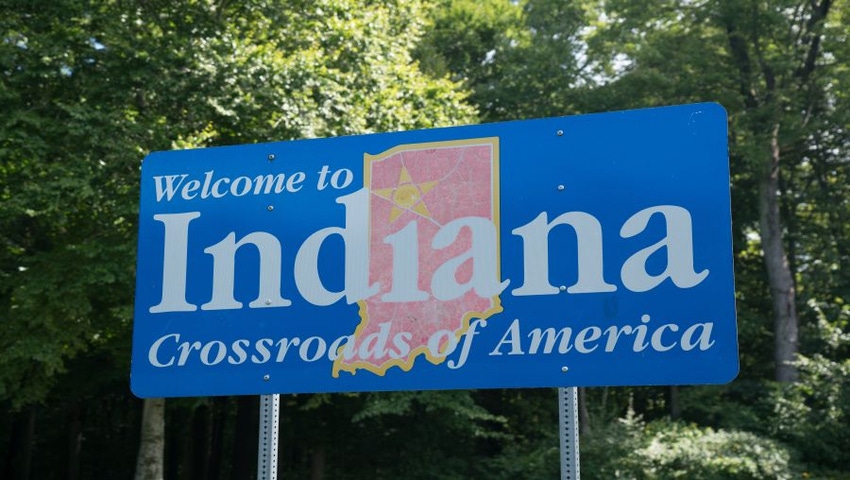March 16, 2018

Below is a weekly roundup of health and nutrition developments.
Indiana Lawmakers Agree on CBD Legislation
Lawmakers in Indiana have agreed on a bill authorizing the purchase of CBD oil, with the legislation heading to the desk of Gov. Eric Holcomb.
Under the final version of Senate Bill 52, manufacturers must have each batch of product tested to verify it has less than .3 percent THC, The Indianapolis-Star reported. The newspaper also said products sold in Indiana must have a QR code on the label linking to a document containing information on the batch, such as the ingredients.
Indiana is one of several states where the legality of CBD has been challenged. Last year, Indiana Attorney General Curtis Hill Jr. issued an opinion declaring that CBD is not a legal ingredient and could be seized by state authorities at any time.
CV Sciences, a manufacturer of CBD, worked with Indiana lawmakers to encourage the passing of legislation that would clarify the distinction between hemp and marijuana.
“We will continue to pioneer this exciting category through increased lobbying & education efforts nationwide,” CV Sciences said in a recent tweet, commenting on the developments in Indiana.
For more, read The Indianapolis Star’s article.
Survey: Consumers Unaware of Drug, Supplement Interactions
Nearly 40 percent of Americans who take a prescription medication and dietary supplement aren’t aware that vitamins and supplements can influence the effectiveness of prescription medicines, revealed a survey conducted by Wakefield Research.
The Vitamin Packs DNI Survey also found that 61 percent of respondents in the millennial generation assume they don’t need to notify their physician if they begin taking a vitamin supplement.
Vitamin Packs, a personalized vitamin subscription service, said consumers must consult with a healthcare provider about possible drug-nutrient interactions.
"Nutrient deficiencies and diagnosed health conditions often require the use of vitamins and prescription medications, but they can interact,” said Michael Roizen, M.D., chief wellness officer of the Cleveland Clinic and Vitamin Packs medical advisory board chair, in a statement. “It is critical that users understand potential interactions.”
For more findings from the survey, see Vitamin Packs’ press release.
Clorox to Acquire Supplement Business for $700 Million
The Clorox Company (NYSE: CLX), a giant marketer of consumer and professional products, has entered a definitive agreement to acquire Nutranext, a health and wellness company based in Sunrise, Florida, for $700 million.
Nutranext manufactures and markets dietary supplement brands in the retail and e-commerce channels, as well as in its direct-to-consumer business. In the 2017 calendar year, the company generated around $200 million in sales.
Clorox, which reported fiscal year 2017 sales of about $6 billion, said it anticipated funding the agreement through a combination of available cash and debt financing. Subject to certain closing conditions, including customary regulatory approvals, the acquisition is expected to close in the fiscal quarter ending on June 30, 2018.
"Adding Nutranext to our portfolio is consistent with our strategy to accelerate growth through acquisitions of leading brands in fast-growing categories with attractive gross margins and a focus on health and wellness," Clorox Chairman and CEO Benno Dorer said in a statement.
For more on the pending acquisition, read Clorox’s press release.
FTC Mails Refunds to Consumers ‘Who Bought Bogus Weight-Loss Products’
The Federal Trade Commision is mailing more than 18,000 refund checks to consumers who purchased allegedly “bogus weight loss products” from two individuals and their companies.
Colby Fox, Christopher Reinhold and their companies—Tachht, Inc. and Teqqi, LLC—inundated consumers with illegal spam email, FTC said, and used fake celebrity enforcements and false weight-loss claims to hawk their products.
Consumers, on average, are receiving a check in the amount of $23.91, with the combined checks totaling more than $437,000.
“In June 2016, the FTC charged the defendants with paying to send emails from hacked accounts to consumers, making it appear that the messages came from their family members, friends, or other contacts,” the government agency explained in a news release. “The messages promoted the defendants’ unproven weight-loss products Original Pure Forskolin and Original White Kidney Bean.”
Under court orders settling FTC’s charges, the defendants were prohibited from the allegedly unlawful conduct and required to pay $500,000 to victims of the supposed fraud.
For more on the case, see FTC’s news release.
You May Also Like




.png?width=800&auto=webp&quality=80&disable=upscale)